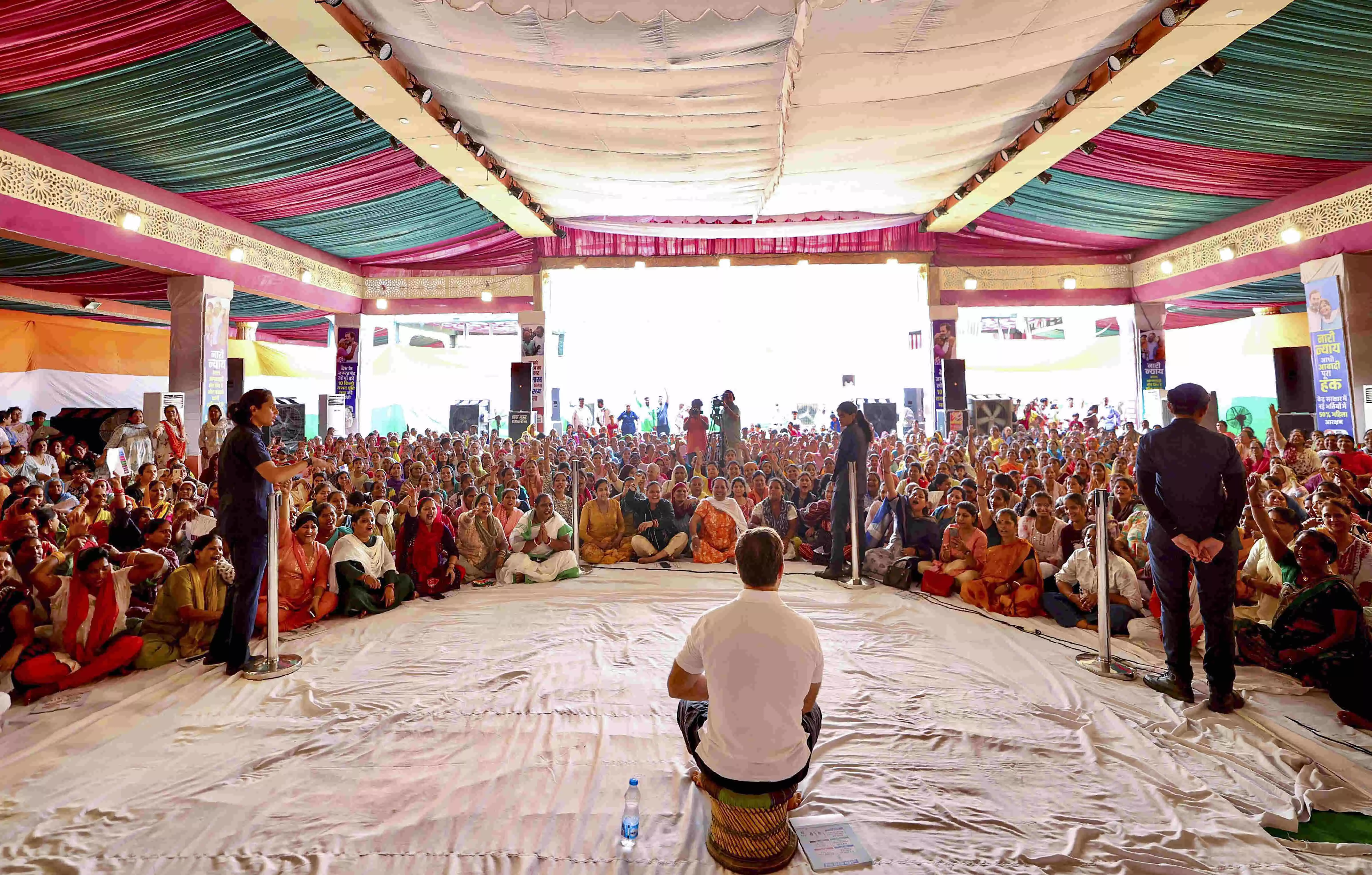Unabating ailments
The political trends in the ongoing General Elections have exposed the inadequacies of the strategies adopted by the opposition—leaving NDA’s dominance unchallenged, and democracy imperiled

The current politics that we witness in India is at its lowest point by any standard of democracy, and political parties are being run in such a way by their leaders. While going through their arguments and lamentations in public meetings during election campaigns, one can observe the absence of truth, decency, decorum, and civility, which degrades the quality of democracy. As is well known, democracy defies definition; it is a growing and ever-widening concept in terms of its meanings and practices. It takes shape and dimensions based on the nuanced application by wise men and women. It is unequivocally argued that to achieve the best results from democratic practices, society needs representatives with capacity, skills, perspectives, and above all, maturity. As human society struggles for liberation, after liberation, society must continue its struggle to establish and stabilise democratic regimes with a liberal outlook in handling power.
This is not an automatic process. It requires serious efforts from political and governance establishments to engage people in governance and development. People's engagement is nothing but participation. By doing so, society will be democratised, and politics will follow democratic values. India is known for its paradoxes and riddles. Despite all antithetical factors to democracy, democratic governments are formed through periodic elections. Yet, one cannot say this is done democratically and immaculately. The only surviving democratic value in India is the periodic conduct of elections and the formation of government based on the electoral victories announced by the Election Commission of India. Other core values of democracy, such as liberty, equality, fraternity, truth, justice, the dignity of the individual, fairness, non-violence, and ethics, are far from practice in India. The practicing value, namely the conduct of elections, is being fractured by political parties and voters through dubious means. As a result, our democracy has become stunted and cannot progress up the ladder of democracy.
In this context, what are the major trends emerging from the 18th Lok Sabha electoral process is a question to be pondered upon. It is a total failure on the part of the Indian National Congress and the major regional political parties to evolve an alternative framework of action and narratives to oppose the ruling National Democratic Alliance and to emerge as a credible victorious front. Though they oppose Narendra Modi, they have not taken cohesive, unified initiatives to face the challenges posed by him.
Secondly, the regional political parties and the national political parties opposing Narendra Modi are fighting against each other in the states where they are strong, which is not a good strategy from the perspective of the people. This confuses voters because the regional political parties do not rely on the Indian National Congress. The mistrust between the regional political parties and the Indian National Congress gives the impression that these parties are not working collectively but are focused on safeguarding themselves from the onslaught of Narendra Modi rather than saving the people or the country.
These kinds of perceptions and activities of INDI Alliance partners have allowed a narrative to develop that the NDA is working on an agenda to take the country to 2047, while the INDI Alliance parties are working to protect themselves from corruption charges.
Yet another serious issue within the Indian National Congress, felt by many, is the role played by Rahul Gandhi in the party as well as in alliance formation. The perception is that while Rahul Gandhi is a good human being and innocent, he is not cut out for the leadership of a national party. If he is a national leader, several factors contribute to building his image, from his dress to his choice of words in public addresses. On this count, neither the party nor Rahul Gandhi has taken anything seriously. As a result, he often appears contradictory while addressing gatherings. He is unable to bring order to his party as he cannot withstand the pressure from various senior leaders. Recently, when he visited Tamil Nadu, he made some observations about the achievements of the Dravidian parties. Social media groups have highlighted this, suggesting that the Indian National Congress has accepted the ideology of the DMK and that the DMK is a guiding star of the Indian National Congress, as if the ideology of the Indian National Congress is outdated.
The last issue is credible leadership among the INDI Alliance to stand against Narendra Modi. In all public opinion surveys, Narendra Modi tops the list. The gap between Narendra Modi and Rahul Gandhi is wide. Both the Indian National Congress and the regional political parties carry the burden of the perception that they are family-owned and property-owned parties, which draws the attention of new voters and the youth.
Another issue keeping the masses emotionally engaged is the character of our politics and movements. Democracy, secularism, and constitutionalism lack emotional appeal compared to issues like the mandir and nation-building, which are utilised by the Prime Minister. In contrast, the INDI Alliance partners move in the opposite direction. First-time voters are closer to the NDA rather than the INDI Alliance bloc.
In this context, what is needed now is an alternative approach, perspective, and strategy to counter the BJP. Both the Indian National Congress and the regional political parties must reposition themselves through introspection and recreate their ideology through contextualisation and the construction of alternative narratives. This should be done very seriously by the parties, at least to take on Narendra Modi in 2029. The INDI bloc faces problems at two levels: leadership and contextualising ideology and narratives. This requires serious thinking and untiring efforts on the part of the leaders.
The writer is a former Professor and Rajiv Gandhi Chair for Panchayati Raj Studies, Gandhigram Rural Institute. Views expressed are personal



